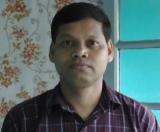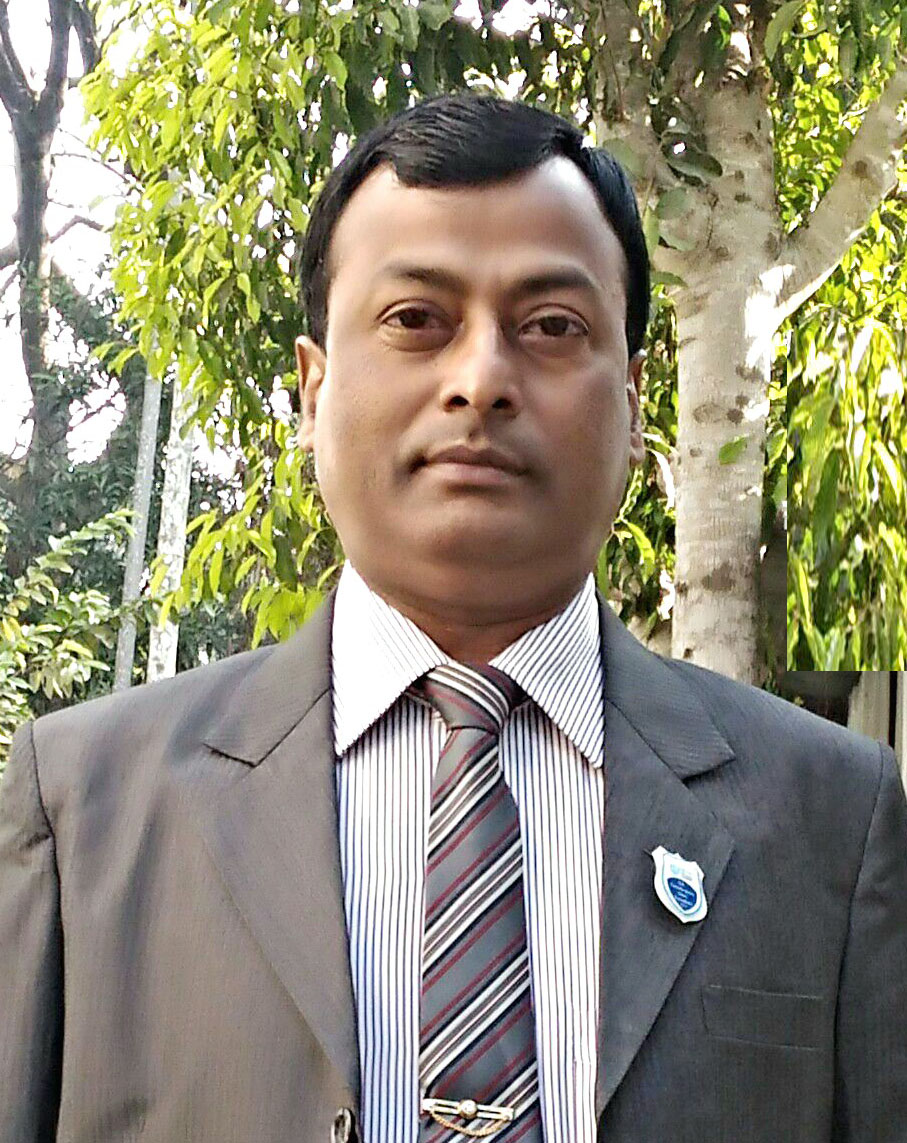Dipak Kumar Sharma
MA (Gauhati) PhD (Gauhati)
Kavya
dksharma[at]gauhati[dot]ac[dot]in
The Department of Sanskrit, one of the oldest Departments of Gauhati University, established in the year 1957, has been rendering significant contribution towards teaching and research in the discipline, in this region of North-East India.
Starting with only four students, with Late Professor Mukunda Madhava Sharma as the founder teacher, the Department now takes pride of enrolling one hundred and forty regular students in PG programme. The Department has been conducting M.A., and Ph.D. programme, and has produced over the years, a large number of alumni, who have contributed a lot towards the development of the society in various capacities. Department has also started offering Five Year Integrated Masters Programme (M.A.) in the year 2023. Prominent alumni include Justice Dr. Mukundakam Sharma, Retired Chief Justice of Supreme Court, presently the Chancellor of Lal Bahadur Sastri Rastriya Sanskrit Vidyapeeth, New Delhi, Prof. Tapodhir Bhattcharjee, former Vice-Chancellor, Assam University, Silchar, Late Kesada Mahanta, the noted Sanskrit scholar, winner of many academic prizes, Retired Professor, J.B. College, Jorhat, Sri Dipak Kumar Sharma, Retired IAS, Member, Assam Public Service Commission, Assam, Prof. Dipak Kumar Sharma Vice-Chancellor, Kumar Bhaskar Varma Sanskrit and Ancient Studies University, Nalbari, Dr. Saharuddin Ahmed, Retired Assistant Curator, Assam State Museum, Govt.of Assam, Sri Sailen Das ACS, Retired Director, Char Area Development and Additional Secretary, Welfare of Minority Affairs, Govt.of Assam and a galaxy of noted educationists. Prof. Rajendra Nath Sarma, a product of the Department, earned recognition of the first D.Litt. awardee of the Gauhati University.
The Department started functioning with only three teachers, and subsequently the strength of the teacher gradually increased. The distinguished teachers who served the Department from its inception are Late Prof. Mukunda Madhava Sharma, Dr. Bratindra Kumar Sengupta, Prof. T. Venkatacarya, Late Prof. Jogiraj Basu, Late Prof. Bhabendra Nath Hazarika, Late Pandit Bipin Chandra Goswami, Late Dr. Priyangshu Prabal Upadhyaya, Late Prof. Kali Prasad Sinha, Late Prof. Apurba Chandra Barthakuria, Prof. Ashok Kumar Goswami, Prof. Naliniranjan Sarma, Late Prof. Laksahira Gogoi Chutia, Prof. Maitreyee Bora, Prof. Thaneswar Sarma and Professor Rajendra Nath Sarma. The Faculty members, both the past and the present, have also earned distinction across the country and abroad, through their outstanding contributions towards the dissemination of Sanskrit studies.
Late Prof. Sukumar Biswas, Department of Bengali, Gauhati University was appointed Part-time teacher to teach Philology in the Department since its inception till his retirement. Late Pandit Rajeswar Tarkatirtha, Late Acarya Rajanikanta Deva Sarma and Late Dimbeswar Sarma, as Guest Lecturers, and Late Acarya Manoranjan Shastri as Visiting Professor, served the Department from time to time. Prof Mukunda Madhava Sharma, Dr. Priyangshu Prabhal Upadhyaya, Prof. Ashok Kumar Goswami and Prof. Apurba Chandra Barthakuria had been conferred the prestigious Preseident’s Certificate of Honour for their distinguished service to the cause of Sanskrit respectively in the years 1988, 1995, 2007 and 2004.
The Department of Sanskrit, Gauhati University, publishes annually the following two journals.
1. SURABHARATI
UGC CARE Listed Peer- Reviewed Annual Research Journal
ISSN : 0976-4488
Publication Frequency: Annual
The Department has been publishing regularly this peer-reviewed Annual Research Journal named 'Surabharati'. The prime focus of the Journal is to publish research-oriented papers related to Sanskrit and Indological studies. The Journal provides platform to the teachers and researches of Sanskrit and Indology, for publishing their works with a boost for pursuing intense research in the field. The Journal considers review and research papers related to Vedic Studies, Epics, Puranas, Smrtis and Dharmasastras, Classical Sanskrit Literature Sanskrit Grammar and Linguistics, Indian Philosophy , Buddhist Literature and Philosophy, Jaina Literature and Philosophy, Ancient Indian Sciences, Indian Aesthetics, Poetics, Religion and Culture, Indian History, Contemporary Sanskrit Writings, Manuscriptology and Paleography.
2. SHODHAJYOTIH
Peer-Reviewed Annual Bilingual Research Journal
ISSN : 2321-628X
Publication Frequency: Annual
List of Books Published by the Department:
Workshops / Seminars / Conferences Organised:
Krishna Kanta Handiqui Memorial Lectures:
Sl.No
|
Date and Year
|
Name of the Speaker
|
Topic
|
1
|
1994
|
(in two series) Prof .Ramaranjan Mukharjee Prof. Vachaspati Upadhyaya |
Philosophy of life As Reflected in Kalidasa Kalidasa’s Sanskrit Classic : Meghduta |
2.
|
23 November,1995
|
Prof. S.P.Banerjee
|
Indian Tradition-Its Relevance to the Contemporary Indian Society and Its Impact on the Current Education System
|
3.
|
27 November,1998
|
Prof. SItanath Goswami
|
Mahabharata: Its Relevance in Modern Times
|
4
|
26 April,2000
|
Prof. Mukunda Madhava Sharma
|
The Philosophy of Lotus Symbol
|
5
|
2001
|
Prof. Ashok Kr. Goswami
|
Indian Poetics: Reviewing Tradition and Transformation |
6
|
20 September,2002
|
Prof. Satya Narayana Chakraborty
|
Changing Phases of Ramayana Stories
|
7
|
2003
|
Prof. Gopal Krishna Dash
|
Dharmasya Darsanasya ca samanvayavinduh
|
8
|
28 January,2005
|
Prof. Bhavani Prasad Bhattacharya
|
Schools of Vedic Interpretation(Eastern and Western)
|
9
|
13 March, 2007
|
Prof. Krishna Kanta Sharma
|
Srimadbhagavadgitayam Samkhyayogah
|
10
|
24 December,2007
|
Prof. Hari Dutt Sharma
|
Banishment of Sita:A Review of the Ramayanic Literature
|
11
|
28 November,2008
|
Prof. V. Kutumba Sastry
|
Kalidasiyam Prayogavijnanam
|
12
|
10 November,2010
|
Prof. Mrinal Kanti Gangopadhyaya
|
Atomic Hypothesis in Indian Philosophy
|
13
|
27 March, 2012
|
Prof. Samiran Ch. Chakrabarti
|
Elements of Poetry in Vedic Literature
|
14
|
18 March, 2013
|
Prof. Radha Vallabh Tripathi
|
Natyasastra and Aesthetics
|
15
|
21 March, 2014
|
Prof. Raghunath Ghosh
|
Research Methodology: An Indian Approach
|
16
|
29 October, 2014
|
Dr. Om Prakash Pandey
|
Vedic Cosmology and Modern Science
|
17
|
6 March,2017
|
Prof. Kamalesh Datta Tripathi
|
Identity of Indian Theatre
|
18
|
28 March, 2018
|
Prof. Sashiprabha Kumar
|
Women in the Vedas
|
Over the years, the Department has produced nearly two hundred Ph.D.s successfully. The list of Ph.D. awardees is provided below.
There is an ongoing ICSSR sponsored Empirical Collaborative Project in the Department. Prof. Sudeshna Bhattacharyya is the Project Coordinator.
Title of the project is:
"Envisaging Transformation Reforms in HEIs Under National Education Policy, 2020 at North East Region with Special Reference to select HEIs of Assam, Meghalaya, and Mizoram: An Empirical Study".
The University Grants Commission (UGC), in the year 2011, recommended the Department of Sanskrit, as a Department of Excellence for its academic achievements and supported the Special Assistance Programme (SAP) at the level of Department Research Support (DRS)-I for five years (1.4.2011 – 31.3.2016).
The thrust area of the Project was "Influence of Vedas, Epics and Puranas on the Society, Culture and Literature of North-East India".
Focus of the Project: The focus of the Project was to study extensively the influence of the fundamental literature of India, viz., the Vedas, the Epics and the Puranas on the socio-cultural and religious life of the people of this region. The impact of these works on the literature of this region both textual and oral was also a focal point of this Project.
Detailed Justification: The congregation of the states consisting of Assam, Arunachal Pradesh, Meghalaya, Mizoram, Nagaland, Manipur, Tripura and Sikkim is a cultural mosaic of many groups of people having different racial, social and cultural background. This North-Eastern part of India ethnically belongs to Mongoloid and Austric stocks. Later on, the Aryan people started immigrating to this region that brought with them new cultural traits - Vedic and Puranic. This part of India has distinctive characteristics geographically, ethnically, culturally and in many other respects in comparison to the rest of the country. Though the North-East is characterized by marked ethnic, linguistic and cultural diversities, yet, Vedic and Puranic religion has played a significant role in this region, which is reflected in its literary records, epigraphical materials, vestiges of ancient temples, sculptures, numismatic evidences and the like. This heritage has continued in an unbroken sequence till date.
The North-East region finds a unique place in the cultural map of India by virtue of the fact that it has some distinct cultural heritage of its own,and yet the culture of North-Eastern region is a continuation of Indian culture. The influence of the Vedas, the Ramayana, the Mahabharata and the Puranas is visibly noticed in the socio-cultural life of the region. It can be mentioned here that the influence of the Epics and Puranas in the preachings of two great social reformers of Assam, viz., Sankardeva and Madhavadeva of 15th-16th centuries A.D. is self-evident. The impact of their teachings still continues to influence the people of the region. Likewise, the influence of the Epics and the Puranas can be perceived, that is reflected in the societies of the states of the region like Manipur, Tripura etc.
This region is inhabited by a large number of tribal groups. Over the ages these groups have moved towards Hindu fold through acculturation, integration and assimilation. In the process many tribal myths and legends have been changed or modified on the basis of myths and legends of the Epics and Puranas. As for example, a chronicle of the Koch royal dynasty has tried to establish its relation with the story of Parasurama. Even many religious practices of the ethnic groups of this region, which are customarily believed to be non-Aryan, actually contain Aryan elements.
It is noteworthy that the varied and multiple cultural traditions of dance, drama and folk-songs, such as Satriya dance, Manipuri dance, Ojapali, Puppet show, Bhaona, Ankiyanat, Bargeet, Folk-songs of Kamrupa and Goalpara are based largely on stories and narrations from the two great Epics and the Puranas.
It should be pointed out that the Assamese literature has also been greatly influenced by these works. The poetic rendering into Assamese of the Ramayana by Madhava Kandali enjoys the status of being the very first reproduction of the Epic in a regional language of the country. The Karbis of Assam also have a version of Ramayana in their own language which is known as Karbi-Ramayana. A very interesting case of absorption of the Ramayana story is provided by the Mizo tale called “Khena-Ramate Uno Thawnthu” (The Story of Khena and Rama). It is based on the Ramayana story and incorporates most of the basic components of the Epic narrative.
The epigraphical records belonging to the ancient period of Assam in particular and the North- Eastern region as a whole reflect a marked influenced of the Epics and the Puranas. The influence of these works also found reflected in the archaeological evidences.
In this way, it can be deduced that the Vedas, the Epics and the Puranas have exercised far-reaching influences on the society, culture and literature of the people of North-Eastern India.
Objectives of the Project: Followings are the objectives
To explore the fields where the influence of the Vedas, Epics and Puranas is noticed clearly.
To explore the fields where such influence is not clearly perceptible but the chance of such influence cannot be denied.
To access the contribution of the North-East India to the field of Sanskrit as a whole and to the field of Vedic, Epic and Puranic studies in particular.
To examine the findings of the researchers, in this field, so that the main hypothesis of the Project can be proved.
Major Achievements: Apart from the research activities of the Faculty members, the Seminars, held in the department under DRS-1 SAP, proved to be very useful to the students, researchers and teachers as well. The themes of the Seminars, held annually, provided a new insight into the concepts and perceptions relating to these themes. The issues were widely discussed and debated in the Seminars which brought into light new thoughts and ideas.
The five Seminars, held under DRS-1, SAP, fruitfully ended with the conglomeration of the resource persons, academicians, research scholars and students from different parts of the country.
1. The first Seminar under SAP was held on 15-16 February, 2012. The theme of the seminar was "The North-East and the Vedic Lore".
2. The second Seminar under SAP was held on 25-26 March, 2013. The theme of the seminar was "Influence of the Ramayana and the Mahabharata on Culture and Literature of North-East India".
3. The third Seminar under SAP was held on 14-15 March, 2014. The theme of the seminar was "Manuscript Resourses of the North-East: Influence of Vedas, Epics and Puranas"
4. The fourth Seminar under SAP was held on 24-25 March, 2015. The theme of the seminar was "Influence of Ancient Sanskrit Literature and Culture of North-East India".
5. The fifth Seminar under SAP was held on 30-31 March, 2016. The theme of the Seminar was "Influence of Puranas on the Society, Culture and Literature of North-East India".
Under this project the research scholars and the students of the Department were also academically benefited. The books bought under SAP have enriched the library and have contributed to the research activities of the scholars. Moreover, the special lectures on diverse issues delivered by prominent academicians helped in building constructive and positive ideas among students, teachers and research scholars. Two workshops for the students were also organized which helped them much academically.
Linking with the above objectives of the study, the Department of Sanskrit under the auspices of SAP had expanded the scope of research activities. It had initiated more research avenues for intellectual and academic pursuit with focus on North-East India relating to the thrust area of the Project on the different themes, such as literature, religious rites and rituals, art and architecture, social customs, music and dance, satriya culture, etc.
Publications: During this period the Department published three (3) books under the scheme of DRS-I.
1. The North-East and the Vedic Lore (Select Proceedings of the National Seminar held under DRS-I, SAP)
2. Pragjyotisacandrika ( A Collection of Research Papers Produced under DRS-I, SAP)
3. Anvesa (The Epics and the North-East). This is also the select proceedings of national Seminar held under DRS-I, SAP.
The Department thus covered the major parts of the North-East during this period. But as the area of the project was a very large one, so the whole project could not be completed in the first phase of SAP, i.e., DRS-I. Hence, the department applied for DRS-II on the same topic with the addition of Dharmasastras.
It is indeed a proud moment for the department that the UGC has approved it and granted DRS-II on the topic "Influence of Vedas, Epics, Puranas and Dharmasastras on the Society, Culture and Literature of North-East India".
Name of the Programme : Master of Arts in Sanskrit
The Masters Programme in Sanskrit is designed to impart quality education for earning proficiency is Sanskrit language and literature, with a thorough and updated knowledge of the rich heritage of India.
Intake Capacity : 80
Duration of the Programme : Four Semesters in Two Years; each semester is of 24 Credits.
Admission Process:
The Entrance test will be held for the students for admission, irrespective of any University they belong to. The Entrance Test will be of 100 marks of two hours duration. There will be of 50 MCQS and for the rest 50 marks, there will be descriptive questions, including short type and broad type questions. A merit list will be prepared for admission and accordingly 60%weightage will be on B.A. marksheet and 40% weigtage will be on the marks obtained in the Entrance Test. Admission will be fully online including payment of application, Entrance and admission fee through the Admission portal of Gauhati University.
The Entrance Test will be held on the basis of the Degree Syllabus of the Gauhati University. The medium of the test will be English and Sanskrit.
Click Here for Detailed Syllabus
2. Five Years Integrated Masters Programme
Click Here for Detailed Syllabus
3. Research Programmes
Name of the Programme: Ph.D. in Sanskrit
The Ph.D. Programme enables the scholars to contribute towards providing quality research in Sanskrit language and literature. The programme also provides platform to conduct interdisciplinary collaborative research activities, and develop thorough knowledge of ancient Indian scientific thoughts. The Department conducts Courseworks for Ph.D. Programme which involves four papers to be completed in a single Semester with 24 credits.
Click Here for Detailed Syllabus
PG Admission 2024:
For admission related information, please visit:
https://admissions.gauhati.ac.in/


MA (Gauhati) PhD (Gauhati) MPhil (Gauhati)
Veda
jagadishsarma[at]gauhati[dot]ac[dot]in




MA (Gauhati) PhD (Gauhati)
Kavya
sudeshna3D[at]gauhati[dot]ac[dot]in


MA (Gauhati) MPhil (Gauhati) PhD (Gauhati)
Philosophy
maram[at]gauhati[dot]ac[dot]in

M.A. (Delhi), M.Phil. (Delhi), Ph.D.(Delhi)
Indian Philosophy and Allied Subjects
udita[at]gauhati[dot]ac[dot]in